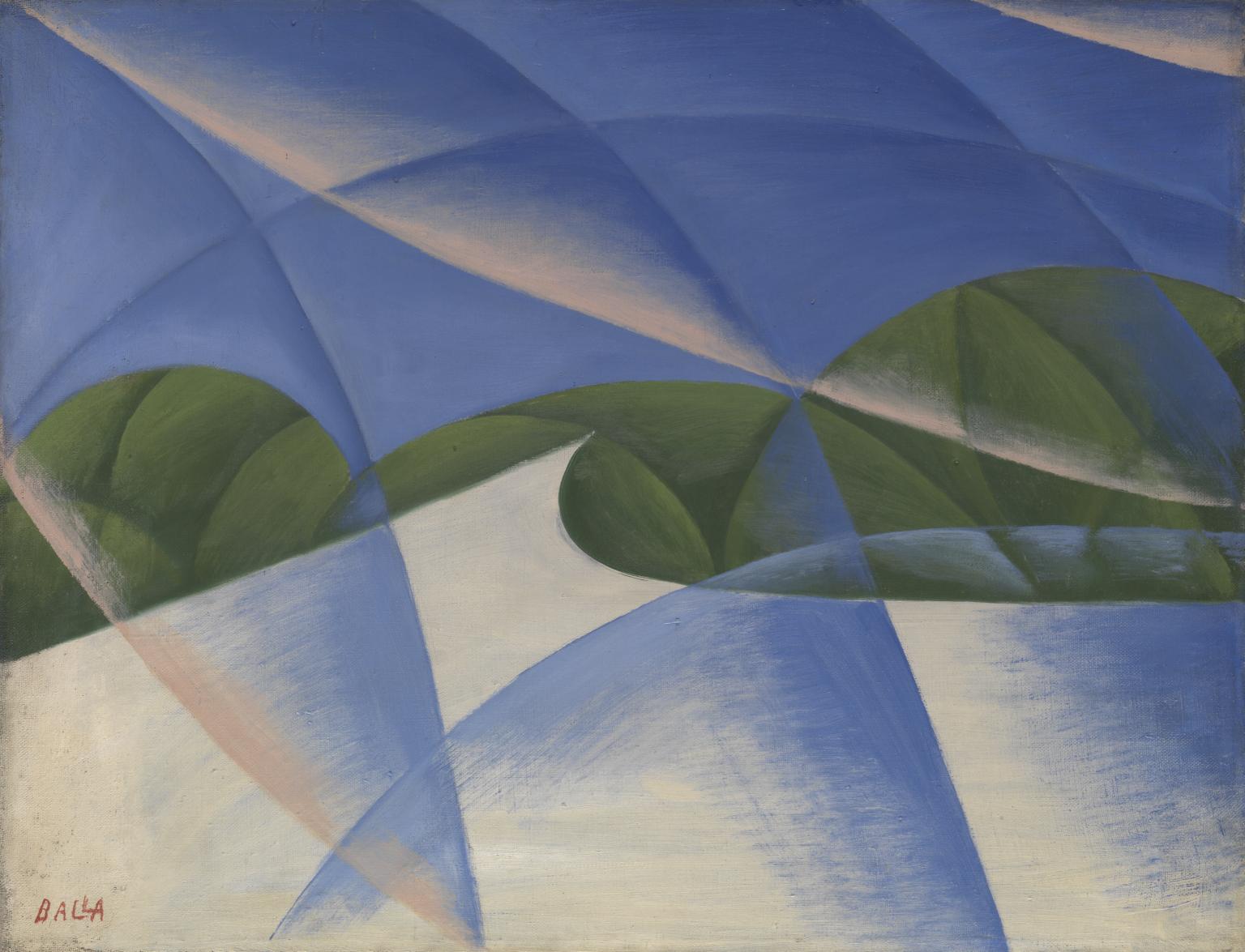TO MY PEGASUS
By:
August 16, 2024
A (pro- or anti-) science-, mathematics-, technology-, space-, apocalypse-, dehumanization-, disenchantment-, and/or future-oriented poem published during sf’s emergent Radium Age (c. 1900–1935). Research and selection by Joshua Glenn.

Vehement god of a steel race,
Automobile thirsting for space
shuffling and trembling in anguish,
pulling at the bit with strident teeth!
O formidable Japanese monster,
with a forge’s eyes,
fed by flames and mineral oils,
hungry for horizons and sidereal preys…
I will set free your heart with its diabolical
beat
and its gigantic pneumatic tires,
for the dance that you will lead
on the white roads of the world! …
I finally release
your metallic bridle,
and voluptuously you rush
into Infinite freedom!
At the barking of your great voice
the setting Sun pursues your speed,
accelerating its bloody palpitation
on the edge of the horizon…
It gallops, deep in the woods, down there…
Look!…
But nothing matters, my beautiful demon.
am at your mercy… Take me! … Take me! …
On the earth, deaf though vibrant with
echoes,
under the sky, blind though thick with
stars,
prick my fever and my desire,
my sword against their nostrils! …
And from time to time I straighten my back
and feel my vibrating neck
embraced by the fresh velvet arms of the
wind…
They are your distant arms that cast spells
and draw me in,
and the wind is your breath like an abyss,
as you joyfully absorb me, o bottomless
Infinite! …
Ah! ah! I suddenly see awkward black
windmills,
that seem to rush on their wings
of whaled canvas
as though on giant limbs…
And now the Mountains are about to throw
mantles of sleepy coolness on my flight.
There, there, at that ambiguous turn!
Mountains, monstrous herds! Mammoths
that trot heavily, bending your immense
backs,
you have been surpassed, drowned
in a gray tangle of fog! …
And I hear the vague echoing noise
of your fabulous seven-league boots
pounding on the roads! …
O Mountains with fresh azure mantles! …
Beautiful rivers breathing in the beatific
moonlight! …
Shadowy valleys! I pass you at full gallop
on this crazed monster!
Stars, my stars, do you hear
its precipitous steps? …
Do you hear its voice, breaking with rage …
its explosive voice, barking, barking …
and the thunder of its steel lungs
crashing endlessly into the precipice? …
accept your provocation, o my stars! …
Faster, faster! … Without repose, without
pause! …
Let go of the breaks! … Can you not? …
Crush them! …
And multiply the beats of the motor’s
pulse!
Hurray! No more contact with this
disgusting earth!
I can finally detach myself and supply fly
on the intoxicating fullness of the planets
that swells forth in the great bed of the sky.
— From Marinetti’s 1908 collection The Carnal City
In Joshua C. Taylor’s book Futurism, published in 1961 by MoMA, we read the following about this poem:
Marinetti, in substituting a modern racing car for the classical winged symbol of poetry, set the pace for much that would follow in the Futurist movement. Not only did the automobile with its violently pulsing, noisy life typify the modern world, spawned on science and devoted to mechanical achievement, it stood as well for a staggering speed that surpassed in its power the wings of Pegasus. Yet in assuming the role of Pegasus the motorcar became more than a proof of physical achievement; it became the symbol of a new kind of spiritual transport. Marinetti was not belittling poetic imagination. He wished to rekindle it in modern terms.
“We choose to concentrate our attention on things in motion,” wrote Severini, “because our modern sensibility is particularly qualified to grasp the idea of speed. Heavy powerful motorcars rushing through the streets of our cities, dancers reflected in the fairy ambiance of light and color, airplanes flying above the heads of the excited throng… These sources of emotion satisfy our sense of a lyric and dramatic universe, better than do two pears and an apple.”
Like many of their fellows elsewhere, the Italian Futurists were fighting the estrangement from the world, the lonely isolation of the individual that was not only the inheritance of the artist but a common threat to modern man. They rejected firmly the temptation to brood over man’s plight, sentimentalizing over his helplessness in the way fashionable at the turn of the century. They turned against the Lombard tradition that encouraged a crepuscular sadness to invade the works of even the most methodical divisionists. With Nietzschean arrogance they despised the weak and the timid, the thoughtful or hesitant, and wished to feel themselves rash, audacious, and capable of infinite accomplishment. They wanted their art to restore to man a sense of daring, an assertive will rather than submissive acceptance, to break through the insulating shell of self by sheer force if need be. “We want to re-enter life,” they wrote; and to them life meant action.
RADIUM AGE PROTO-SF POETRY: Stephen Spender’s THE PYLONS | George Sterling’s THE TESTIMONY OF THE SUNS | Archibald MacLeish’s EINSTEIN | Thomas Thornely’s THE ATOM | C.S. Lewis’s DYMER | Stephen Vincent Benét’s METROPOLITAN NIGHTMARE | Robert Frost’s FIRE AND ICE | Aldous Huxley’s FIFTH PHILOSOPHER’S SONG | Sara Teasdale’s “THERE WILL COME SOFT RAINS” | Edith Södergran’s ON FOOT I HAD TO… | Robert Graves’s WELSH INCIDENT | Nancy Cunard’s ZEPPELINS | D.H. Lawrence’s WELLSIAN FUTURES | & many more.
